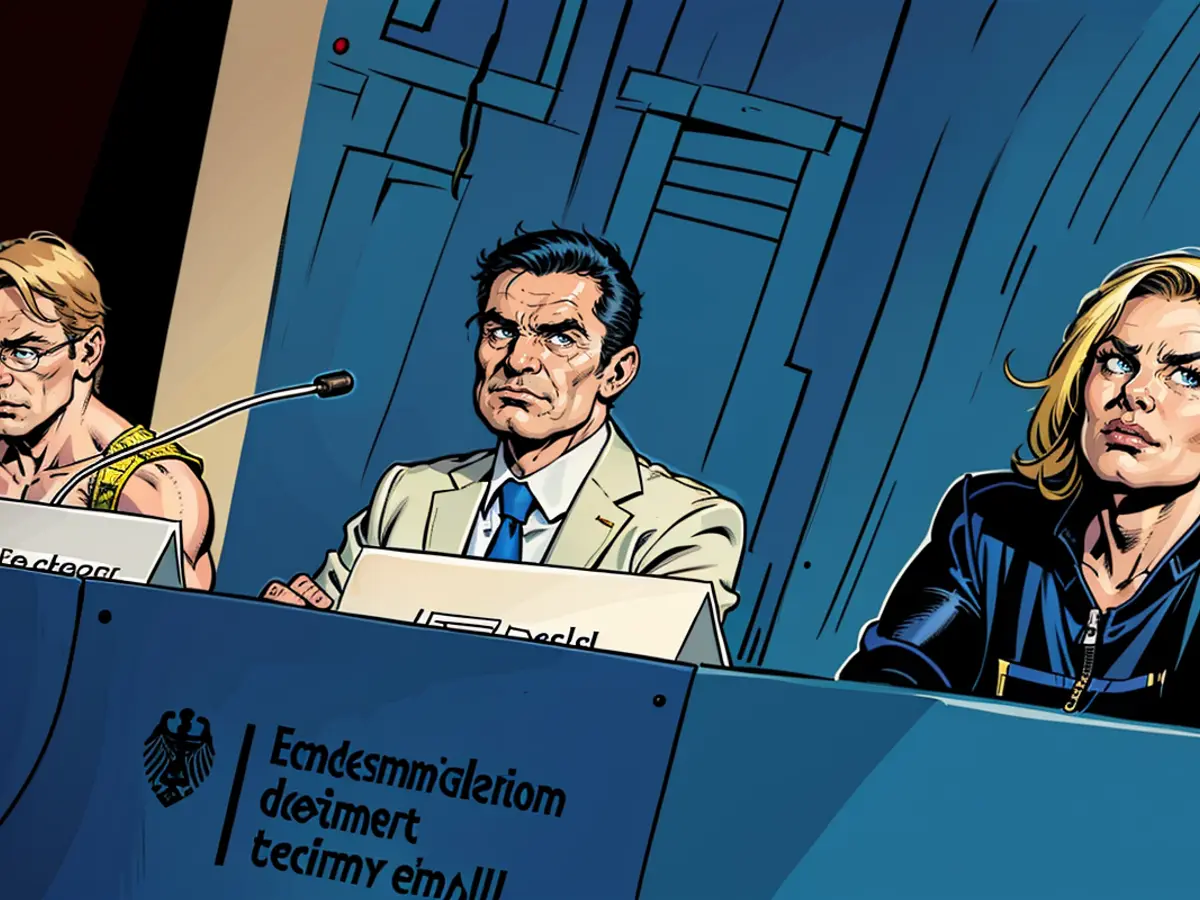The administration consents to a safety and immigration accord
Following the lethal knife attack in Solingen, Germany is enacting strict measures in immigration and asylum policies. Discussions with foreign countries and the European Union begin next week. The latter finds these measures inadequate.
The German government has proposed a series of actions to tackle migration and asylum issues, triggered by the knife attack in Solingen. This includes amendments to gun laws, enhanced security powers, deportations, and prevention measures. Interior Minister Nancy Faeser spoke of "significant changes." Justice Minister Marco Buschmann described it as a practical and helpful package to bolster Germany's safety and adopt a harder stance on immigration.
Expected criticisms have emerged from the Union and the police union GdP.
Planned measures involve expanding knife bans and outlawing dangerous switchblades. Spending cuts and even benefits reductions are considered for certain asylum seekers. For asylum seekers whose responsible EU country is identified under the Dublin procedure, "further benefit acquisitions in Germany will be prohibited." Those who leave for their home country without a valid reason during the asylum application process will lose their protected status. Facial recognition using publicly accessible data will be allowed, and the federal police will be permitted to utilize AI for this purpose.
Faeser again expressed her shock over the attack. She claimed that the government had always promised to take robust steps. Talks with the coalition partners, the Greens and the FDP, have already occurred since the weekend.
Chancellor Olaf Scholz announced on Wednesday that the government would take action following the Solingen attack alongside foreign countries and the European Union. Three individuals were killed, and eight were injured in the attack on Friday. Scholz reacted to a CDU leader, Friedrich Merz's, proposal, with whom he had previously discussed the repercussions of the knife attack. However, the CDU/CSU parliamentary group chairman only advocated for assigning one representative each from the government and the Union to prepare for cooperation on changes to the law.
The federal government intends to engage with the Union and two federal states, Hesse and Lower Saxony, for the following week to discuss the plans. Buschmann clarified that this would not solely be a one-way communication where states dictate to the federal government. Instead, they would also discuss implementation flaws with the states. "There is much to discuss at the state authority level," said the FDP politician.
Union: Certain aspects are largely symbolic
The Union deemed the package insufficient. "There's nothing wrong with the presented proposal, but unfortunately, it lacks the necessary measures," stated CDU General Secretary Carsten Linnemann to the "Rheinische Post." The federal government is "not keen on seriously addressing the restriction of illegal migration." Looking ahead to the planned talks, Linnemann suggested: "If the federal government is interested in constructive discussions, boundaries, the application of the Dublin rule, and consistent deportations must be discussed on Tuesday." They apparently have the required knowledge, but "the issue lies in implementation," noted Linnemann. "The era of working groups is past its prime."
Even CSU legal expert Volker Ullrich expressed reservations about the effectiveness of the agreed measures. "I fear that the measures of the 'traffic light' coalition do not go far enough," he told the Funke newspapers. "Certain things, like gun law enhancements, are likely more symbolic in nature." However, he considered the decisions "the initial step in the right direction."
Meanwhile, the Police Union (GdP) had hoped for more. GdP chief Jochen Kopelke stated that they missed regulations on the monitoring of IP addresses and prompt improvements for the federal police at the borders. A comprehensive review of those entering from terrorist group regions was necessary, he suggested. However, he regarded the plans to permit the police to employ biometric facial recognition software as progress.
The Green Youth expressed severe criticism. "The fact that the traffic light coalition is responding to the dreadful terrorist attack in Solingen with stricter asylum law implementation is regrettable. Instead of combating Islamism, refugees are being targeted," stated co-chairwoman Katharina Stolla. "Out of fear of the right, the traffic light coalition is yet again being pushed to the right."
- Despite the German government's proposal of strict immigration and asylum measures following the Solingen attack, the European Union and some individual countries, such as the Union, have deemed these measures inadequate.
- The CDU General Secretary, Carsten Linnemann, criticized the German government's proposal, stating that while it's not flawed, it lacks sufficient measures to effectively restrict illegal migration and should discuss boundaries, the application of the Dublin rule, and consistent deportations in the upcoming talks.








